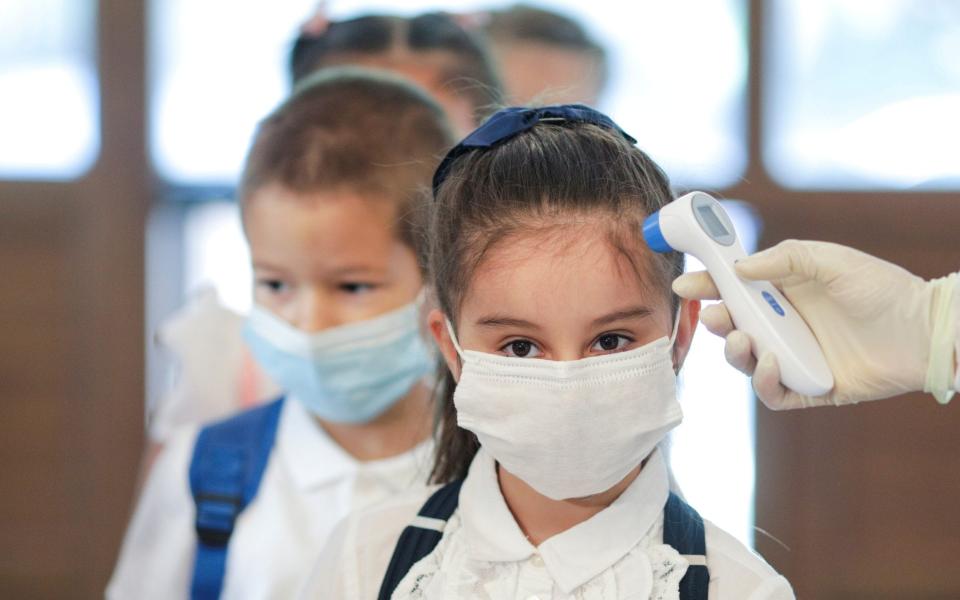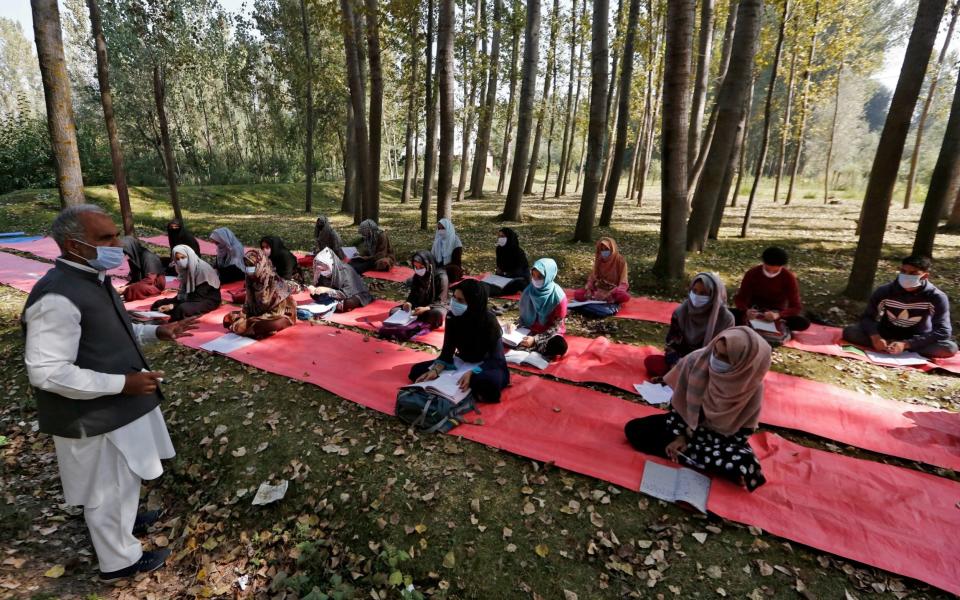No link between schools and coronavirus infection rates, global analysis suggests

There appears to be no link between schools reopening and rising Covid-19 cases, according to an analysis of data from 191 countries.
Evidence from around the world has shown there is no correlation between pupils returning to education after coronavirus lockdowns and a rise - or fall - in new infections, the report from Insights for Education found.
Chief executive Dr Randa Grob-Zakhary, said: "It's essential to study the evidence to avoid making false assumptions about the impact of opening and closing schools on virus transmission.
"It’s been assumed that opening schools will drive infections, and that closing schools will reduce transmission, but the reality is much more complex. The key now is to learn from those countries that are reopening effectively against a backdrop of rising infections.”
Fifty-two countries, including France and Spain, actually saw infection rates rise during the holidays. Some, such as Croatia, have seen cases fall after reopening schools. Others, like Hungary and Great Britain, have seen a rise since reopening schools, according to the data - based on Unesco and World Bank figures alongside rigorous daily media scans over the last six months - although the UK infection rate was already trending upwards before schools reopened.
Overall, the picture is so varied that a link between schools and coronavirus transmission cannot be proved, the report suggested. Other factors, including the country's health system capacity and economic openness and the robustness of its testing and tracing system, nust be considered.
The analysis backs up what scientists increasingly believe - that children, initially thought to be major potential spreaders of coronavirus infection, do not appear to be playing that role. However, at the same time, there is a growing body of work showing the detrimental effects of keeping kids out of school across the globe.
Reflecting this, the report found that most countries which are now in the midst of their second coronavirus waves, including many European countries, are not considering going back to full-scale school closures and are instead looking at how to keep schools open despite rising infections.
That differs from countries still in their first wave of infections, such as Brazil, where schools are still largely closed.
The report estimates that 711 million children, or around half of the world's primary and secondary school learners, may remain out of school until at least the end of this year - the majority in lower-and-middle income countries, which could "accelerate" inequality.

Dr Grob-Zakhary said countries at an earlier stage in the pandemic could learn from how countries experiencing second waves were dealing with the "new normal", realising that the virus has not gone away but education has to resume regardless.
"This first real global test highlights what school life looks like in a Covid-world,” she said. She said that measures including improved hygiene, mask wearing, and social distancing seemed to be working in most countries which have reopened effectively, alongside improved transparency and communication with families, as seen in countries like Japan and Denmark.
Adequate preparation times for reopening also appeared to be a factor - for example, Israel, which gave the sector just days to re-open, experienced huge problems.
Testing has a role to play, too. In Sierra Leone, students taking their exams were allowed back, and tested for the virus regularly, and then even those who tested positive were still allowed to sit exams - if they felt well enough - in a separate room.
Dr Grob-Zakhary said the report was important to "break assumptions" that school is a more dangerous place to be during Covid-19 than at home.
"It is fair to ask at this point, are the risks of staying out of education exceeding those of going back in?" she said.
Protect yourself and your family by learning more about Global Health Security

